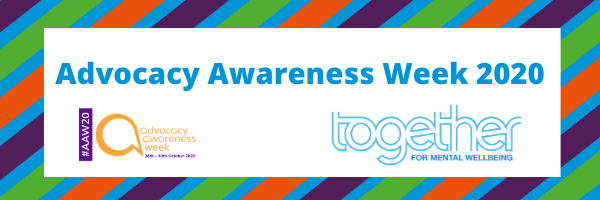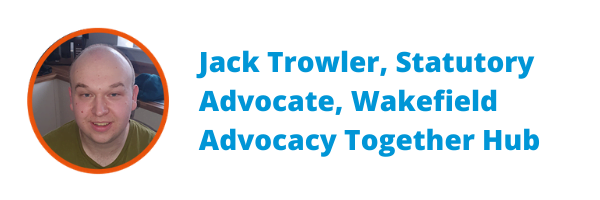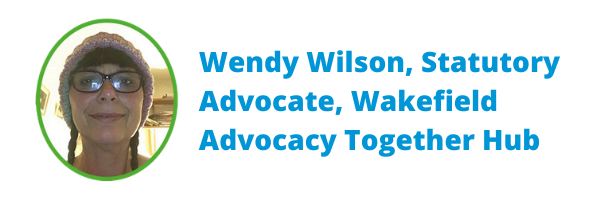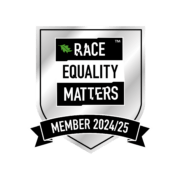Advocacy Awareness Week 2020

Advocacy Awareness Week runs from the 26th to the 30th of October and to celebrate that we wanted to highlight the vital role advocates play in our services. We spoke to staff from our advocacy teams to find out more about their roles, how they support people and why that is so important:

What is your role as an advocate within Together and how did you come to be involved in providing that support?
I work as a statutory advocate within Together. I support people in a number of roles, including, Independent Mental Capacity Advocate (IMCA), Independent Mental Health Advocate (IMHA), Relevant Person’s Representative (RPR) (For those under a Deprivation of Liberty Safeguards (DoLS) authorisation) and supporting people under the Care Act. I’ve been involved in advocacy for 4 years.
I have always felt passionately about helping and supporting people. I was previously working in management in supported living services for adults with learning disabilities. During that time, I witnessed how clients with additional needs were treated during care reviews and medical appointments by professionals. Their views were ignored and the whole process was wasn’t very person centred. When the opportunity arose to take on an advocacy role within Together I jumped at the chance.
I started my advocacy career supporting clients under DoL’s authorisations, as a paid Relevant Persons Representative, ensuring their care was delivered in the least restrictive way possible and to make sure they were happy. Since then, I’ve taken on further training and as a result, different advocacy roles.
What are some of the ways you support people that use Together advocacy services and why are they so important?
The main way I support people, is by putting forward their views and wishes in regards to certain situations. This can be in regards to so many different aspects of their lives, including medical procedures, views on care and accommodation and their goals and aims for the future. My role is to ensure that the client is at the centre of any process and other professionals facilitate their involvement. On many occasions, clients may be unable to, or may wish not to take part, but would like me to express their views.
Part of my role is to also challenge decisions that have been made by professionals that the client is unhappy with. This could be supporting them to call a review within social services or even seek legal support if appropriate.
What are some of the reasons you enjoy working as an advocate?
I enjoy working as an advocate as I feel that we support people who are in real need. Some of the decisions that I have supported people around have been life altering. It’s always very special to support someone to achieve an outcome that has such a positive impact on their lives. That is something I strive for with each person I support and is why I continue to work as an advocate.
Working as an advocate has also made me realise that the role is so important in protecting the rights and welfare of clients. This has involved me challenging professionals when they’ve not been considering how their decisions will impact the client’s life. Without advocates doing this, some clients may not feel confident or be able to challenge such decisions themselves, which could possibly result in a huge negative impact on their lives in various aspects.
Are there things you feel people don’t know about the impact of advocacy services that they should know?
I feel sometimes people believe that an advocate makes decisions on behalf of the client and has views of their own and that the role is to purely agree with the decision maker. As advocates we are independent and do not work for any hospital or local authority, we can challenge decisions and ask questions if we feel correct processes haven’t been followed or if the client is unhappy with the decision.
The advocate’s role is to empower someone to be involved as much as possible. Each client’s level of preference in regards to involvement is very different. Some may feel that writing a letter to their social worker is ideal for them, whilst others would like support to attend their own meetings and express their feelings themselves.

What is your role as an advocate within Together and how did you come to be involved in providing that support?
My role is a statutory advocate the kind of advocacy that I provide is Care Act, IMHA, IMCA and the role of RPR. All advocacy cases I work on are from social services, Dols Teams and the Health Authority. I am allocated cases by Craig Milburn our Manager at the Wakefield Advocacy Hub.
What are some of the ways you support people that use Together advocacy services and why are they so important?
The Advocacy support I give can be anything from supporting individual’s with care reviews and assessments, to attending ward rounds, supporting with Managers Hearings and tribunals to challenges of someone’s Dols. It’s important to safeguard people’s rights and ensuring professionals hear what the individual wants to say.
What are some of the reasons you enjoy working as an advocate?
I enjoy working as an advocate because it’s a fulfilling role knowing that you have supported someone to have their rights upheld and to be able to have equality in a service that they receive.
Are there things you feel people don’t know about the impact of advocacy services that they should know?
Yes, we can make a difference it’s as simple as that.


